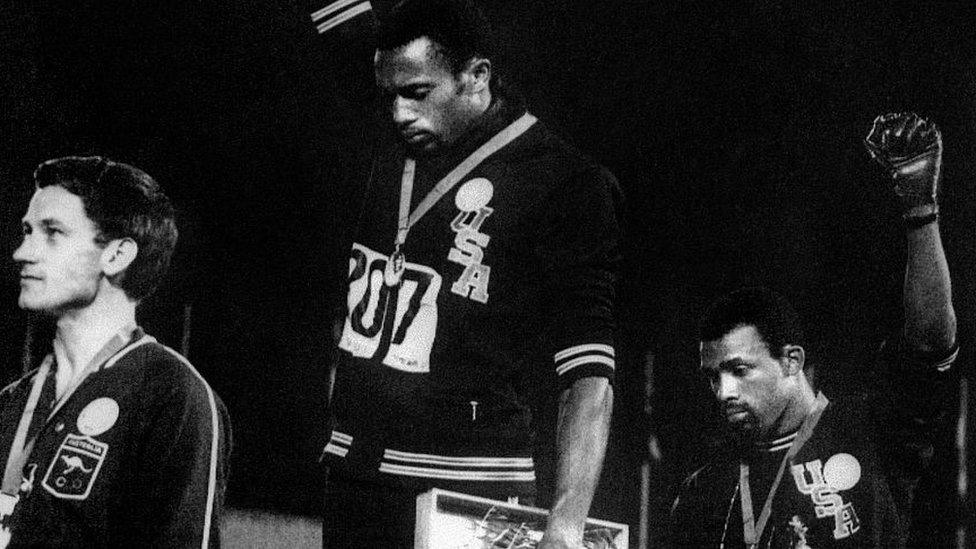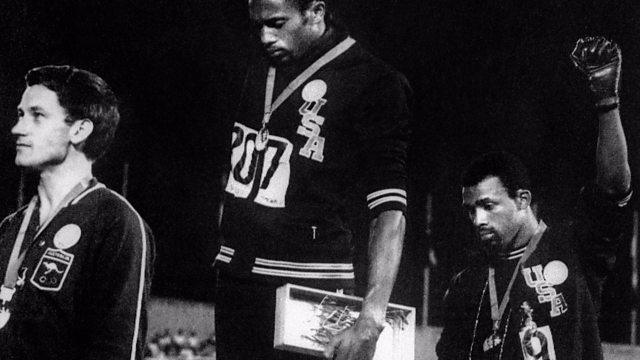Peter Norman: Push to honour 'forgotten' podium protester
- Published

Peter Norman (left) supported his rivals' protest
Campaigners in Australia are calling for greater recognition for an athlete often described as the "forgotten man" in an iconic civil rights protest.
Australian sprinter Peter Norman stood with US rivals Tommie Smith and John Carlos as the pair gave a Black Power salute at the 1968 Olympics.
It became one of the 20th Century's most famous images.
Norman was punished for his involvement at the time and now there are calls for him to be better acknowledged.
The Peter Norman Commemorative Committee, with support from his family, are pushing for Australian authorities to recognise his legacy with a monument in Melbourne.
What was Norman's role?
Norman surprised many observers by claiming the silver medal in the 200m sprint at the Mexico City Olympics.
After learning of the American athletes' plans for a podium protest, Norman is reported to have said: "I will stand with you."
It was the Australian who suggested that his rivals share Smith's gloves - taking one each - after Carlos realised he had forgotten his.
Norman wore a human rights badge on the podium in a public display of support.
What happened afterwards?
The protest caused controversy at the time and Norman was excluded from the 1972 Olympics in Munich, despite being ranked fifth in the world. He retired soon afterwards.
His supporters have also criticised him not being invited to take part in celebrations for the 2000 Olympics in Sydney.
He attended the event as a guest of the US athletics federation.
Norman remained lifelong friends with Smith and Carlos until the Australian's death in 2006 aged 64. The pair were pallbearers at his funeral.
In 2012, the Australian parliament made an official apology, external and recognised "the powerful role that Peter Norman played in furthering racial equality".
What do campaigners want?
They say Australian authorities should go further by building an interactive monument in central Melbourne to honour his place in history.
"The committee wants to give Peter back the glory he forfeited for standing up for what was right," convenor John Toscano told the BBC.
He said the monument could also serve as a symbol for anyone "who wants to stand up and fight and do the right thing".
Melbourne Lord Mayor Robert Doyle said he was open to "some form of commemoration", but there were no plans at present.
- Attribution
- Published2 August 2016
